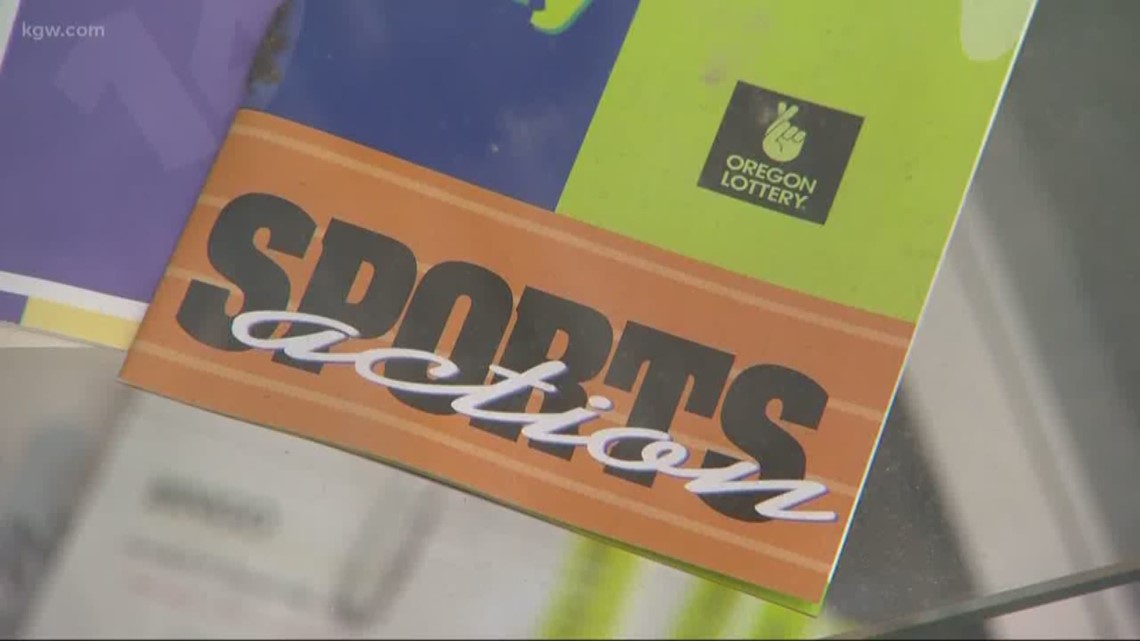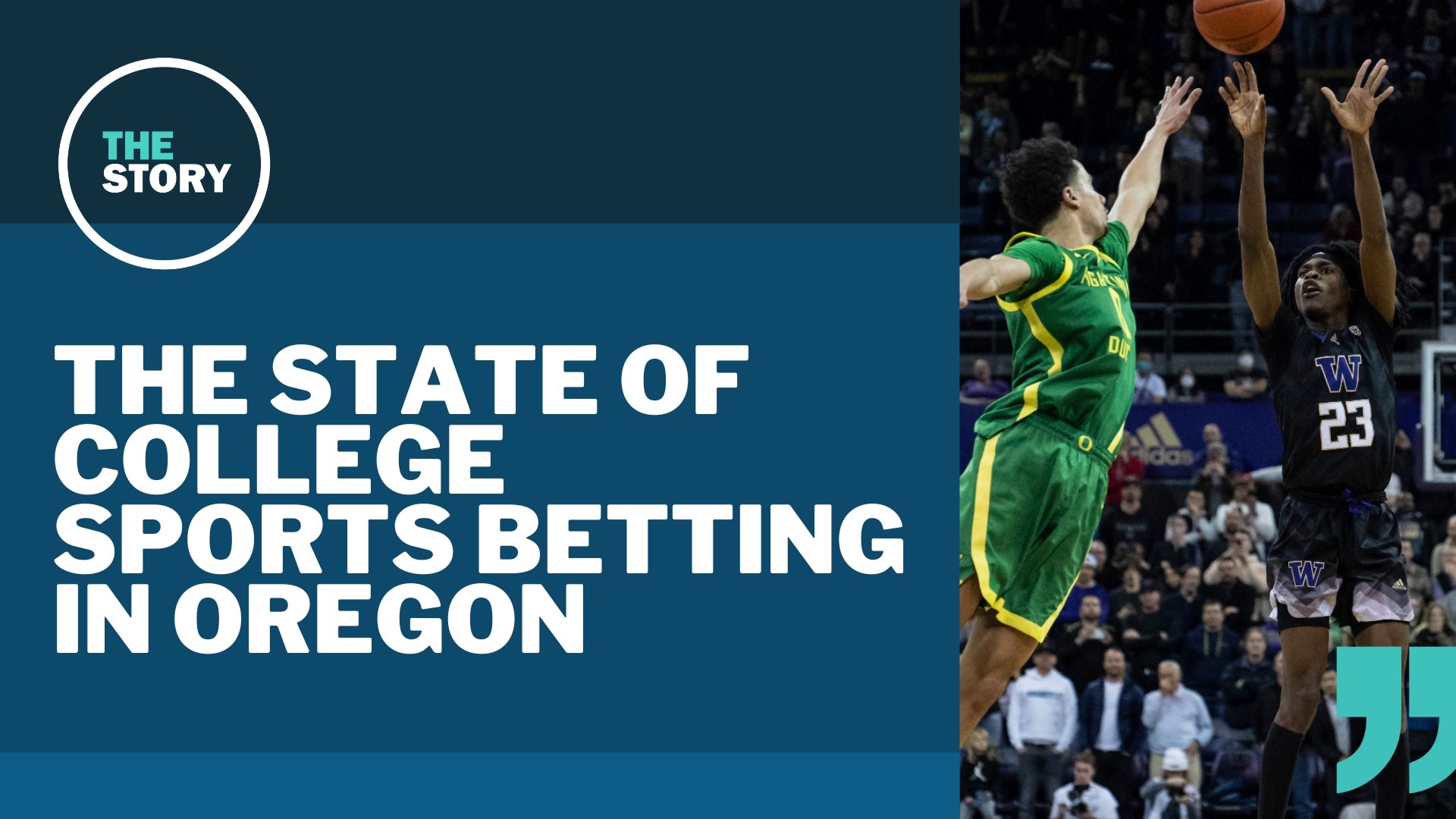PORTLAND, Ore. — Oregon was one of the first states to jump on the legalized sports gambling bandwagon in 2019, and it's been a hit product for the Oregon Lottery over the past five years. It still represents only a small slice of the state's lottery revenue, but it's a fast-growing slice, rising 72.4% from 2022 to 2023, according to a financial report.
That growth means that with the NCAA men's tournament kicking off this week, there are probably a lot of Oregon sports fans who are new to the gambling scene and eager to place bets during March Madness — but some complaints on social media hint that they might be disappointed.
THE QUESTION
Is it permitted to bet on the NCAA tournament in Oregon?
THE SOURCES
THE ANSWER
No, it's not permitted to bet on any college sports in Oregon. The only exception is at certain tribal casinos. The state's sole legal online platform for sports betting, DraftKings, won't allow users in Oregon to place bets on college games.
WHAT WE FOUND
Sports betting has enjoyed a massive resurgence in the United States over the past five years, all stemming from a 2018 Supreme Court decision overturning a 1992 federal law that prohibited states from legalizing and taxing sports gambling.
The Oregon Lottery wasted no time, launching a state-sponsored app called "Scoreboard" in 2019. Two years later, the state switched to a partnership with DraftKings Sportsbook, which had acquired the company that built the Scoreboard app. At the moment, DraftKings is still the only legal game in town for online sports gambling in Oregon.
Oregon law doesn't prohibit the lottery from including college games, but the state Lottery Commission opted to leave college sports out when it authorized sports betting, because it knew the NCAA was uncomfortable with the idea. That decision still stands at the moment, so the DraftKings app won't let Oregon users place bets on college players or games, and Oregon Lottery retailers can't offer March Madness brackets or sports pools.
Tribal casinos are an exception to those restrictions. According to the American Gaming Association industry group, Oregon law allows tribal casinos with Class III gaming to offer sports betting. That includes college sports; the sports betting pages on multiple major tribal casino websites in Oregon state that college or NCAA betting is allowed.
The lack of college sports betting in the rest of the state makes Oregon a bit of an outlier; among the 26 states where DraftKings is currently allowed to operate, 24 of them allow college betting in at least one of three categories; in-state team betting, team props or player props. Only Oregon and Maine prohibit all three types of college betting.
Proposals for change
There have been attempts to end Oregon's college sports betting prohibition, most notably during the 2022 legislative session, where former Senate President Peter Courtney argued that the lack of an easy, legal option for college sports gambling was pushing Oregonians toward risky black market offerings, sometimes without realizing they were illegal.
But Courtney's bill ultimately died in committee after receiving pushback, including from multiple Oregon tribes who argued that online sports gambling threatens the casino revenue that they rely on.
Oregon Administrative Rules specify that the DraftKings app must be geographically restricted to prevent players from placing sports bets while on tribal land, so the tribes don't have to directly compete with the state lottery to pick up sports gambling bets from players inside casinos.
But Justin Martin with the Confederated Tribes of Grand Ronde testified that the state lottery still gets more than 60% of Oregon's overall gambling market share, and he said adding college sports to the state's gaming lineup would make the tribes' competitive disadvantage even worse.
"It is true that tribes — not all tribes — but currently, tribes do have the ability to offer NCAA sports betting through our own sportsbooks," he said during a public hearing. "But as you guys know, we are geofenced in offering our product on reservation lands. You also know that we are all located in rural areas and parts of the state, so it's very difficult for us to get these products into the hands of all Oregonians."
Unique Oregon history
Many state legislatures moved quickly to legalize sports gambling after the 2018 Supreme Court ruling, although in Oregon's case there was no legislative authorization needed; the state Constitution gives the Lottery Commission the power to add new games on its own. But the commission did make legislative leaders aware of its plans back in 2019, and lawmakers passed a bill that year to direct how sports gambling revenue would be used.
Technically, Oregon didn't need the Supreme Court's permission to offer sports gambling. The 1992 federal ban included an exception for states with existing sports gambling programs, according to a 2021 article in the Eastern Economic Journal, and Oregon was one of four states that already had one; the state lottery had launched an NFL betting game called Sports Action in 1989.


Oregon continued to offer Sports Action until the legislature ended the program in 2007. It was actually March Madness that prompted the state hang it up, even though Sports Action only included NFL and, briefly, NBA games. The NCAA historically opposed all sports gambling, and it refused to bring championship games to any state with a sports betting program.
That was an easy threat for the NCAA to make back when 46 states couldn't offer sports betting even if they wanted to, but the 2018 Supreme Court decision changed the national landscape overnight. If the NCAA tried to impose a sports betting boycott today, it would be left with only 12 states that could host championship games.
In recent years the NCAA appears to have dropped its categorical opposition to sports betting, though it still maintains a strict ban for college athletes and its own personnel. It has instead focused on pushing states to update their sports betting laws to include better protections for college athletes.

